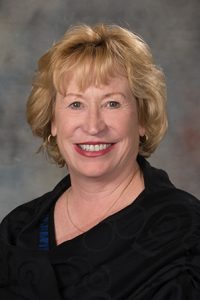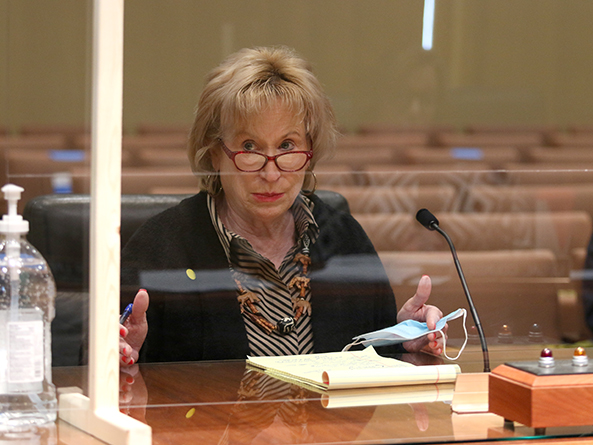Constitutional limit on property tax revenue growth proposed
Nebraska voters could choose to limit annual growth in local property tax revenue to 3 percent under a proposal heard Jan. 27 by the Revenue Committee.
LR22CA, introduced by Elkhorn Sen. Lou Ann Linehan at the request of Gov. Pete Ricketts, would, if passed, place the proposed amendment to Nebraska’s constitution on the November 2022 general election ballot.
The amendment would limit the amount of property tax revenue raised by a political subdivision in any fiscal year to 3 percent more than the amount raised in the prior year.
Linehan said LR22CA is a “critical” follow-up to LB1107, passed last year, which created an income tax credit based on the amount a Nebraska taxpayer paid in property taxes to their school district during the previous year.
She said levy and spending limits that the Legislature has imposed on local governments have failed to stop dramatic increases in the amount of property taxes those entities collect.
“LR22CA is necessary if we are going to get control over ever-escalating property taxes,” Linehan said. “I am convinced the only limit that will work is a limit on the tax taking.”
Under the proposal, a political subdivision could override the limit after receiving the approval of a majority of legal voters at a special election called for that purpose.
The proposed cap would not apply to the amount of property tax revenue needed to pay the principal and interest on bonded indebtedness. Nor would it apply to the amount of property taxes raised by a political subdivision’s real growth value, defined as the increase in real property valuation due to improvements — such as new construction and additions to existing buildings — and the annexation of property.
The governor testified in support of the proposal, saying the 3 percent cap is “reasonable” and that some local governments and the state have limited their annual spending to around that amount.
In the past decade, Ricketts said, Nebraskans’ income has increased approximately 48 percent while inflation has increased by 18 percent and property taxes by around 52 percent.
“You can’t outstrip the ability of Nebraska families to pay these taxes by allowing property taxes to go up faster than inflation and faster than their income growth,” he said. “This is what makes people mad.”
Doug Kagan of Nebraska Taxpayers for Freedom also testified in support of the resolution. He said the state’s high property taxes prevent young people and those on fixed incomes from keeping their homes or buying new ones.
“Although not every Nebraska property owner would benefit the same from this resolution,” Kagan said, “we believe that Nebraskans should have the opportunity to vote on this crucial issue.”
Mark McHargue, president of the Nebraska Farm Bureau, testified in support of the proposal on behalf of his organization and several other groups representing agricultural producers.
He said LR22CA is a “great start” but should be combined with other legislation to more equitably distribute the cost of paying for education, health care and other state priorities. Right now, he said, local governments rely too heavily on property taxes, paid disproportionately by farmers and ranchers, to fund those services.
Bud Synhorst, president of the Lincoln Independent Business Association, also testified in support. He said the 3 percent cap would make it easier for local businesses owners to set their budgets and make Nebraska a more attractive place to live and work.
“If government spending continues to grow in this manner,” he said, “we will lose our competitive advantage in attracting business to our state.”
Dennis Meyer, budget and fiscal officer for Lancaster County, testified in opposition to the proposal. He said counties already are constrained by levy and spending limits and have no way to raise revenue aside from property taxes.
The proposed cap would make it difficult for counties to budget for road and bridge repairs or increasing health insurance costs, Meyer said.
Lynn Rex of the League of Nebraska Municipalities also testified in opposition, saying the 3 percent cap is “not workable” for the state’s cities and villages, approximately half of which already are near their levy limits.
“From a local government standpoint,” she said, “putting something in the constitution like this is highly problematic because of the lack of flexibility.”
The committee took no immediate action on LR22CA.


